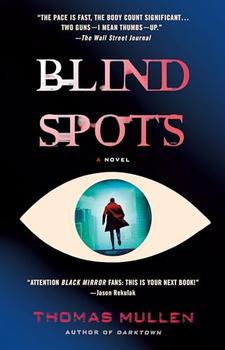Summary | Excerpt | Reading Guide | Reviews | Beyond the book | Read-Alikes | Genres & Themes | Author Bio

What it means to be human-–and a mother-–is put to the test in Carole Stivers' debut novel set in a world that is more chilling and precarious than ever.
It's 2049, and the survival of the human race is at risk. Earth's inhabitants must turn to their last resort: a plan to place genetically engineered children inside the cocoons of large-scale robots—to be incubated, birthed, and raised by machines. But there is yet one hope of preserving the human order—an intelligence programmed into these machines that renders each unique in its own right—the Mother Code.
Kai is born in America's desert southwest, his only companion his robot Mother, Rho-Z. Equipped with the knowledge and motivations of a human mother, Rho-Z raises Kai and teaches him how to survive. But as children like Kai come of age, their Mothers transform too—in ways that were never predicted. When government survivors decide that the Mothers must be destroyed, Kai must make a choice. Will he break the bond he shares with Rho-Z? Or will he fight to save the only parent he has ever known?
In a future that could be our own, The Mother Code explores what truly makes us human—and the tenuous nature of the boundaries between us and the machines we create.
Stivers' novel is not merely a book-length thought experiment about the consequences of a scenario like the one she envisions. It also carries immense and poignant resonance about the vitality and fragility of human lives and relationships and the complexity of human emotional needs, offering heartbreaking scenes of both optimism and grief. Despite its apocalyptic premise, The Mother Code is, at its heart, a surprisingly hopeful novel, one that offers a particularly generous depiction of scientists using their skills and training to address a future that they know they will never see...continued
Full Review
(857 words)
This review is available to non-members for a limited time. For full access,
become a member today.
(Reviewed by Norah Piehl).
 Carole Stivers' novel The Mother Code imagines the rapid spread of a deadly genetically engineered disease called IC-NAN. The widespread proliferation of the disease is due in large part to its receptive archaebacteria, which serve as both host and incubator for the IC-NAN's DNA; as one character puts it, "these archaebacteria are capable of taking in the [nonlethal] linear form, making more copies of it, and manufacturing more [deadly] spherical NANs from that DNA." But what are archaebacteria?
Carole Stivers' novel The Mother Code imagines the rapid spread of a deadly genetically engineered disease called IC-NAN. The widespread proliferation of the disease is due in large part to its receptive archaebacteria, which serve as both host and incubator for the IC-NAN's DNA; as one character puts it, "these archaebacteria are capable of taking in the [nonlethal] linear form, making more copies of it, and manufacturing more [deadly] spherical NANs from that DNA." But what are archaebacteria?
Archaebacteria — or, as they are more properly called, archaea, are microbes that are similar to bacteria in size and simplicity but actually work quite differently on a molecular level. Scientists now believe that archaea form a third, ...
This "beyond the book" feature is available to non-members for a limited time. Join today for full access.

If you liked The Mother Code, try these:

by Ben H. Winters
Published 2024
In this "wild and wonderful" (Lou Berney) corporate espionage thriller that takes the adage "time is money" and makes it frighteningly so, an everywoman FDA employee stumbles upon a dark, clandestine conspiracy to harvest and sell people's time.

by Thomas Mullen
Published 2024
A riveting crime novel with a speculative edge about the ways our perceptions of reality can be manipulated.
Nearly all men can stand adversity, but if you want to test a man's character, give him power.
Click Here to find out who said this, as well as discovering other famous literary quotes!